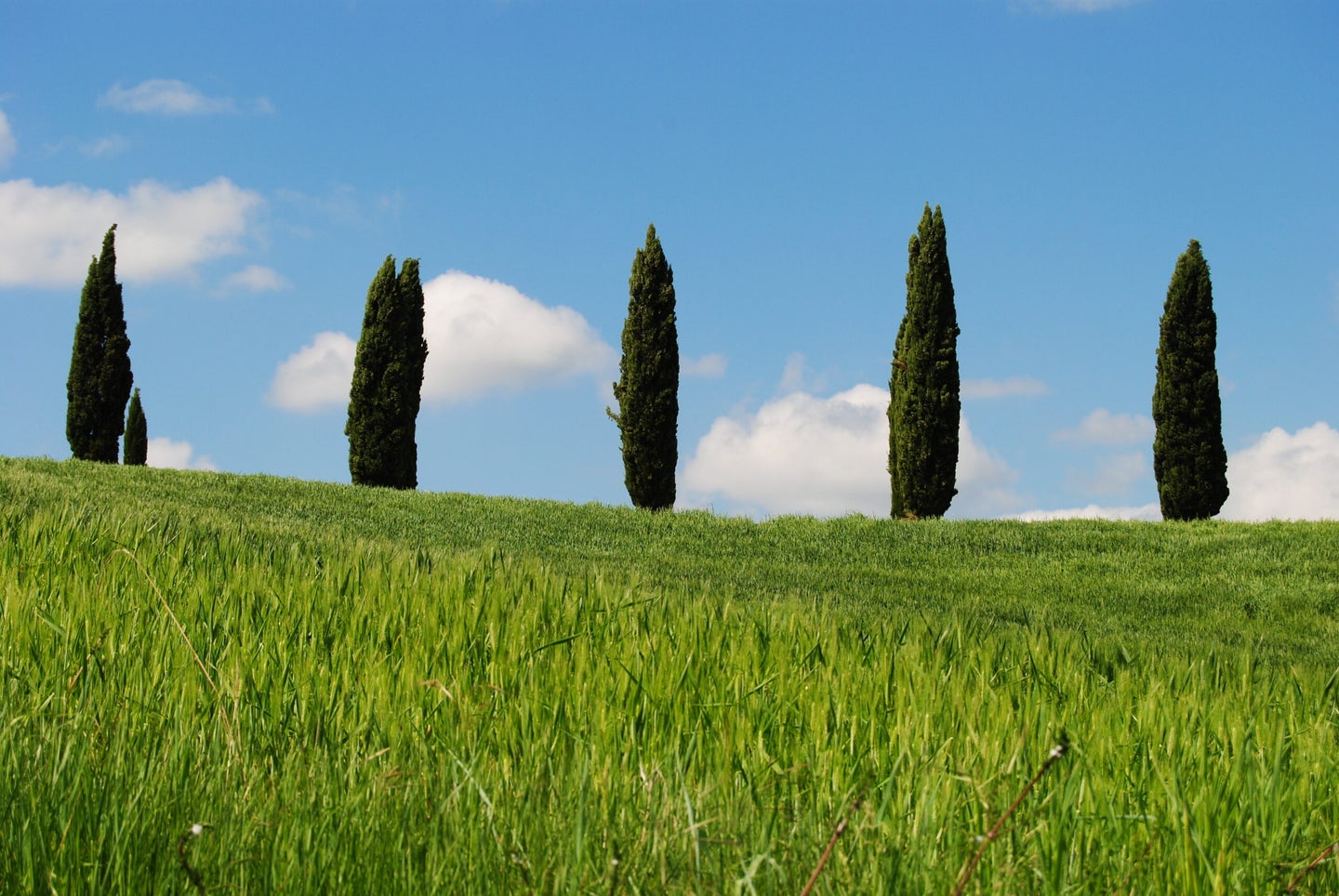A Tree That Could Stop Wildfires
The thin green line

Wildfires are devastating North American forests this summer. Dry, hot weather has pushed millions of acres of trees past their breaking (burning?) point. And while firefighters from around the globe do all they can to save both forests and people, in another part of the world, the trees are fighting back.
In a recent study published in the Journal of Environmental Management researchers found that Mediterranean Cypress trees were resistant to wildfires, and could be a potential deterrent to wildfires in the future.
It all started in the 1980’s, when researchers planted varieties of Mediterranean cypress trees (Cupressus sempervirens) in Spain, testing how the different varieties of the species would handle exposure to a deadly pathogen. Then, in 2012, disaster struck. The study area was burned to a crisp, and researchers feared the worst.
“When we got there we saw that all the common oaks, holm oaks, pines, and junipers had completely burnt. But only 1.27% of the Mediterranean cypresses had ignited,” study author Bernabé Moya told BBC Mundo.
A bright green patch of cypresses remained, and scientists began studying why they persisted when the other trees succumbed. The short answer: water beats fire. They found that cypress trees are able to maintain a high water content in their leaves, even in very hot, dry conditions. Here in North America, there are some plants that are known to be resistant to fire, but they require careful watering and upkeep.
Even cypresses’ shed leaves create a nice wet environment at the base of the trunk. Unlike other leaves, when cypress needles fall, their accumulated mass acts as a sponge, holding on to water, and creating an environment inhospitable to flames. Other trees, like aspen or cottonwood are fire-resistant, but their dry, fallen leaves can be a fire risk.
More research is continuing, with scientists looking into whether other chemical aspects of the cypress make them resistant to fire. There are also plans to plant trees as firebreaks in the Mediterranean region.